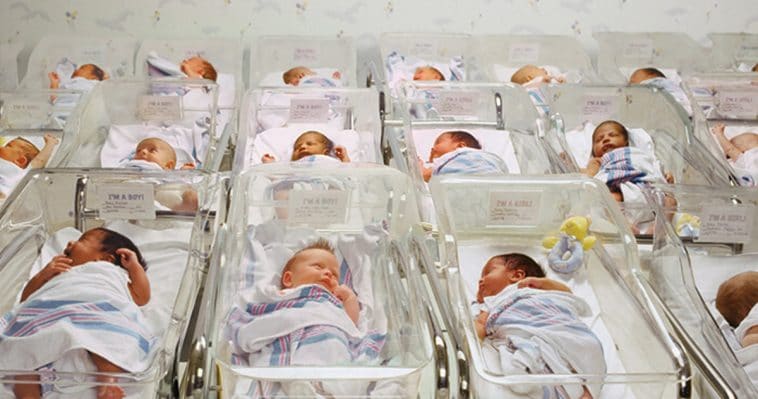The society many of us know is incredibly young when considering how long it’s taken us to get here. Throughout human civilizations, we’ve struggled to survive and had to weather multiple setbacks in our advancements. These cataclysmic events are part of the reason religious texts preach having offspring.
When we were still developing, the problem was sustaining the population. We needed to survive and procreate, just like any other species. Now, we’re facing the opposite problem: we have an overpopulation crisis on our hands.
Overpopulation is an interesting topic since we’ve been fighting to survive for most of human history. Now, our survival relies on the ability to curb procreation instead of add to it. If we don’t implement some of these overpopulation solutions, we may be responsible for our extinction.
The Negative Effects of Overpopulation
Overpopulation of any species will have a devastating effect on the surrounding environment. Humans are no different, but we impact the entire planet with our population.
As people continue to have three or more children, our population continues to grow. The implications of overpopulation are far-reaching. Ironically, the more people we have on this planet, the closer we’re coming to eventual extinction.
Environmental Impact
The most obvious effect of overpopulation is the damage we’re doing to the environment. The more people on the planet, the more resources we’re using and the more space we need. When we use more resources and space, the natural environment suffers.
We’re not in a great environmental place as it stands, but the more people we add, the worse the problem will get. Every person adds to the global pollution in one way or another, even if you only account for their food and transportation.
Food and water are two of the other environmental concerns when discussing overpopulation. The world only has so much food and clean water at a time. We already have water and hunger crises across the globe, and increasing the population means there are more mouths to feed.
We’re already tearing down wilderness to make way for homes and farming lands. If the population continues to grow, we won’t have any natural resources left.
Increased Poverty
The more people a country has, the fewer jobs are available for their citizens. Meanwhile, the demand for housing will increase while the supply decreases. The cost of living will rise at the same time as the unemployment rate, and homelessness will skyrocket.
When this happens, crime will take a steep incline as more people see no other option out of their current situation. Drug use will become more frequent, and society will slowly deteriorate from the inside. Food will cost more, and healthcare will virtually nonexistent for those who can’t pay the high prices.
International Conflict
As the population grows, some countries will be better at adapting than others. When the time comes that food and water are the most precious commodities, conflict is inevitable.
It doesn’t matter how charitable you think you are. When deciding between feeding your family and giving food to your neighbor, most people are going to choose to feed their family. Countries will become more isolated, and wars will begin to heat-up.
We already see people fighting for control over resources. When more people come into the world, these conflicts will only gain steam.
How Can We Curb Overpopulation?

We’ve explored some of the downsides of overpopulation – but now it’s time to look at the solutions. The future isn’t completely bleak, as there are some steps we can take to limit the amount of procreation in the world.
There are several impractical population control solutions out there, but we’re more interested in strategies that are feasible. Here are some of the ways we can fight overpopulation across the globe.
Sex Education
Sex education is the first line of defense on the topic of overpopulation. The more kids know about safe sex, the less likely they are to have unplanned pregnancies at a young age. Giving kids information about safe sex at an early age is often uncomfortable, but it’s one of the necessary overpopulation solutions we need to start considering.
In the age of the internet, we can’t protect kids from information. They’ll find it on their own if they’re curious enough, and telling them about sex in a safe, structured environment is an essential way to prevent misinformation they might find online or hear from their friends at school.
Parents and teachers need to get over the uncomfortable feeling of discussing sex with teenagers. Many of them are sexually active, and parents need to arm them with information to ensure they’re making the right decisions. This advice goes beyond overpopulation, and extends to having happier, healthier sexual experiences.
Increasing Access to Contraception
A lot of unplanned pregnancies occur across the world because women and men don’t have access to contraception. Birth control is extremely difficult to get in certain parts of the world, and when combined with poor sex education the result is often an unplanned pregnancy.
Even when birth control is available, some people can’t afford to pay for it. One solution to this problem would be to implement a system where people can get contraception for free or at a significant discount.
Although some will argue that this plan costs too much money, it’s nothing when we’re discussing the problem of overpopulation. The amount of people on this planet is unsustainable at current rates, and spending a few extra dollars on contraception is only a drop in the bucket.
In developed countries, every sexually active individual should have access to affordable contraception. Teenagers are often too embarrassed or ashamed to ask for condoms or birth control. Instead of waiting for them to ask, we should be giving them contraception, so they’re ready when they need it.
General Education
Sex education is paramount, but it goes hand-in-hand with overall education. The relationship between education and a lower fertility rate is especially evident in women, as statistics from both developed and developing countries prove.
Education opens the door to more opportunities and higher-paying jobs. More than anything, it shows an alternative future that’s independent of having children. In many developing countries, becoming a wife and mother is one of the only prospects young girls see. When they attend school, they begin to understand a way they can make a life form themselves independently.
Of course, the reduced fertility rate is only one of the consequences of increased education. There are countless benefits to expanding education across the board. Still, it’s the poor and underprivileged of the world who have the most children. They don’t have access to education that many in the developed countries do, and that needs to change.
Teaching About Overpopulation
Despite the dangers that our growing population presents, so many people are ignorant of how big of a problem it is. Most people are aware of the environmental problem, but many argue that overpopulation is an even greater threat.
Making people aware of the overpopulation crisis is one of the overpopulation solutions that are easy and relatively cheap to implement. We need to start teaching about where humanity is heading in schools and extend education to responsible family planning in adulthood.
Although someone might have dreamed of having a massive family, they might change their mind when they learn about the downside of having too many people on this earth. If more people decide to have one or two children instead of three or four, we’ll be in a much better place going forward.
Changing Government Policies
Several countries across the globe offer benefits to parents who have more children. Some of these policies even directly encourage their citizens to procreate, while others are aimed at providing for families who can’t afford to have kids on their own.
While officials made many of these policies with their hearts in the right place, they only contribute to the problem of overpopulation. Parents might not have kids for the tax benefit alone (although some undoubtedly do), but they aren’t discouraged by government policy either.
Sometimes, these policies mean that parents with more kids create more income than those without kids. Changing these policies won’t come easy, as many families rely on them for a sustainable income. Still, we need to look at tax benefits and other government policies regarding one of the overpopulation solutions.
One method of changing policy might be to reward families who decide to have two or fewer children with tax breaks. This won’t harm anyone who has a larger family but might dissuade some parents from having an excessive amount of kids.
Decreasing the Population
The only way to limit the population on this planet is to stop people from having so many kids. Having a large family has many benefits, but unfortunately, it’s environmentally irresponsible.
The biggest problem we need to tackle is unwanted and unplanned pregnancies. If we can limit the number of people who have accidental children, we’d be taking massive strives to restricting the number of people on this earth.
Overpopulation is one of the greatest threats facing humanity. We need to start making changes to our global community if we want to continue to thrive for the foreseeable future and beyond.
Image Sources
By Sérgio Valle DuarteWikidata has entry Q16269994 with data related to this item. – Own work, CC BY 3.0, https://commons.wikimedia.org/w/index.php?curid=50749099
http://factswt.com/wp-content/uploads/2018/02/babies-in-ward-758×399.jpg.










One Response
50+ years ago I was in college and heard an expert speaker say “Back Then.” Overpopulation was humanities’ number one problem and relates either directly or indirectly to every other problem humanity faces. People don’t realize that the better and better lives we create, depletes the resources that sustain us at a quicking rate. And for those who don’t realize it, EARTH IS NOT INFINITE! There’s only so much here to sustain us, and when it’s all used up – WE DIE. SO THERE IT IS. PURE, PLAIN AND SIMPLE.